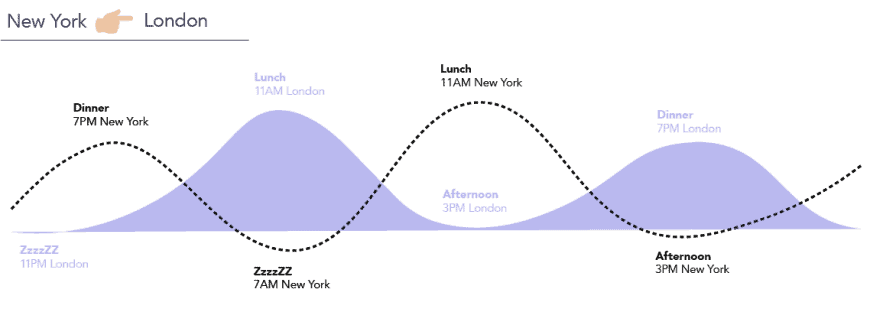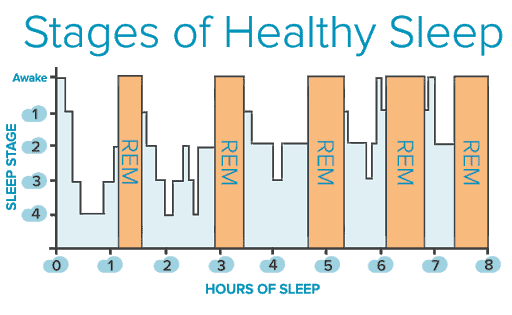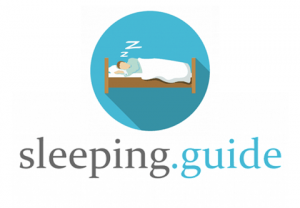It’s the next day.
You’ve slept, but not that much.
That doesn’t seem to matter.
You’re up. You’re busy. You’re getting things done. Alert, aware, and quick – there’s nothing getting in your way of your goals today. All of this on less than 6 hours sleep? Maybe sleep really is for the weak.
Sound familiar?
A lot of people, myself included, have super productive days while having had way less than a night of sleep. So what gives? Is getting less sleep really better for us?
Below I’ve brought together all the answers I could find on this topic. Let’s discover what’s really going on, so you can decide for yourself if less sleep is better for you.
Overall: Why You Feel Better On Less Sleep
I understand that lots of people on the internet are in a rush. Maybe you’re running on low sleep and want answers fast. No worries. Here’s a quick summary of why you might feel better on less sleep:
- You’ve won the sleep lottery and are a genetically short sleeper
- You woke up at the right time on a sleep cycle
- You’ve woken up when your circadian rhythm is at it’s peak
- You’re mistaking “feeling better” with your body’s response to no sleep.
Obviously, there’s a lot more to it than that.
Read on and we’ll dive into some details.
Genetic Short Sleepers
We all know the people who claim they get by fine on 6 hours or less sleep.
So many people are going around claiming they don’t need sleep. Granted, scientists have found that there is a gene which – for some reason – allows you to need less sleep.
What’s the chances you have that gene?
In other words, you have more chance of getting struck by lightning.
So how is everyone else doing it? The short answer is that they aren’t.
You don’t know how sleep impaired you really are.
It’s been found that when people are sleep deprived for so long, they ‘get used’ to it. This isn’t a good thing – like they’ve learned how to function just as well.
It means that they ‘got used to’ being more tired, running on coffee, crankier, more impulsive, more stressed, and so on.
Hardly sounds like an ideal way to live! That’s not even touching on all the scary long term health effects of not getting enough sleep.
Do you have the shorter sleep gene?
Think you have the short sleep gene? Well let’s find out. Think about your answers to these questions:
- Are you energetic all day long?
- Do you naturally wake up after 5-6 hours of sleep?
- Do you often wake up feeling refreshed and raring to go?
- Do you ever need to drink coffee/caffeine to stay alert?
- Do you sleep for longer at the weekends and on vacation?
If you answered yes for the first three, and no for the others, then you may be one of the lucky ones.
For the rest of us mortals – here’s to our next cup of coffee and lazy weekend morning!
Riding the Circadian Rhythm
Our tiredness and alertness run in sync our Circadian Rhythm.
For those who don’t know, it’s a natural cycle within your body – sort of like a body clock. It makes you feel more awake during the day, and more tired at night. No matter what you’re doing or how much sleep you’ve had, this rhythm runs uninterrupted, constantly.
Jet lag is when your circadian rhythm is still stuck in an old timezone, making you feel awake and sleepy at the wrong times for your new zone.

No matter what you’re going through, you’ll feel these natural peaks and troughs of awakeness and tiredness.
As a result, feeling more awake right now may just be because of your circadian rhythm timing. Even if you stayed up all night, during mid-morning and early evening you’d still feel decently awake (especially compared to the rest of the day).
The issue is going to be during mid-afternoon and late evening. If it’s your circadian rhythm that’s currently saving you, beware that it’s going to have the opposite effect later on!
You Nailed the Sleep Cycle
It’s become common knowledge that we sleep in 90 minute cycles. During each one, we change between different ‘levels’ of sleep – mainly alternating between REM and NREM sleep.

Ideally, we want to wake up at the end of a cycle. This will give us the easiest transition between sleep and waking.
However. Waking up mid-way through a cycle can cause havoc. It’s the difference between taking 2 steps up a ladder, or being violently pulled back up from a deep dark well of dreams.
If you’ve slept less but feel good, there’s a chance you woke up bang on the end of a cycle. This is more likely if you woke up naturally, and not due to an alarm. This may feel miles better than getting more sleep, but being forced awake from a deep sleep.
The issue is that you continue to be awake.
What I mean by this, is that you may get off to a good start. But soon, the lack of sleep will catch up with you.
Coming out of sleep easily makes for a refreshed, wakeful morning. One filled with energy and “wow! I feel great today!”.
However, that’s only temporary. After a few hours, your real tiredness levels will start to set in. And this is when your body starts to demand that you try to ‘catch up’ on the missing sleep.
So just like the Circadian Rhythm, this may be a temporary feeling of wakefulness. Try to keep conscious of it as the day goes on.
Your Body’s Reaction to Low Sleep
No matter how much we want to sleep – we can keep going through willpower alone.
It’s not fun, but it’s possible.
So how does your body cope when it’s being asked to run without it’s daily repair stop?
Well, for one, it gets stressed.
This stress opens up a surge in hormones like adrenaline and cortisol. These are pumped into you to keep you more on edge, awake, and alert. They essentially make you tighten up, unable to relax, and wired.
Your body operating like this is like driving your car at super high revs. You’re moving quickly, but the engine is screaming as it’s put into overdrive and revved to the max.
Your body’s no different. While you can operate on these stress hormones, your ‘engine’ will eventually wear out. Only instead of a car breakdown, we get what’s known as burnout.
No matter how much you want to push your body, burnout is inevitable if you’re constantly running on overdrive. You’ll probably get ill – maybe a fever – along with complete shutdown of motivation and any ability to work. No matter how important that work seems.
The Other Side of Running on Stress
This stress may be what is making you “feel” better. You’ve got energy, alertness, and focus. What’s wrong with that, right? Doing it for a little while is surely worth it?
Well, that’s up to you. But there’s one other part to this.
Running on stress is like being a different version of yourself.
Sure, you’re productive at work. But as we see below, you’re also more impulsive, work-focused, and irritable if things go wrong. So while you may be getting things done, operating like this can risk damaging your relationships with your coworkers, friends, and family.
Sleeping For A Long Time Makes Me Groggy!
I get you.
You fight through the week, only to finally lie in on the weekend after a full rest. Yet you’re groggy, can barely think straight, and still need to fight to get yourself going.
So what gives?
One explanation goes back to sleep cycles and circadian rhythm.
Because you’ve suddenly slept for hours longer, and woken up hours later, your body’s basically out sync.
It not been able to predict when you’re getting up, and so you may have been woken up halfway through a sleep cycle, or mid-morning when your circadian rhythm is in a downswing.
Note – if you woke up naturally then your sleep cycle was probably fine.
That means sticking to the same sleeping and waking times, every day. Obviously this is tricky – it’s not easy to go to bed ‘early’ on a Friday night! An hour difference is usually okay, but many people starve themselves of sleep during the week. Friday comes, and it’s a super late night. Leading to waking up mid-morning (or even afternoon) at the weekend.
That’s a recipe for disaster when it comes to good sleep.
Instead, sticking to the same timings helps your body. By having a consistent sleep and wake time, you’ll find that you quickly adjust to it and will have a MUCH easier time waking up and falling asleep.
Conclusion
If you’re running 100 miles an hour on no sleep right now – wait a minute.
Ask yourself, am I really meant to be functioning like this? Does my body feel like it’s using healthy energy, or is it wired? Am I being more impulsive, and less patient? Am I wanting to get things done NOW?
Chances are that you’re running on stress. This is great for short-term productivity, but it’s not healthy. Especially in the long run. Running on low sleep leads to burnout, illness, and other bad side effects of stress. Including bad sleep!
If this sounds like you, slow down. Get what you can accomplished for today, then allow yourself real time to rest tonight. If you don’t look after your mind and body, they’ll take what they need with force.
I hope this guide’s helped given you a few things to think about!
Obviously, everyone is different. Maybe you simply do run better on low sleep, and are the 1 in 12,000 who has the shorter sleep gene.
Sleep is a tricky topic because it’s so individual. So go with how you feel, and don’t be scared to ask a professional with any questions. Just make sure that you’re being genuine in your considerations, and not forcing yourself into overdrive because you want to be super productive. In the long run, the damage to your health just isn’t worth it.
Thanks for taking the time to read this post. If it’s helped, please consider checking out some of our related articles below!
